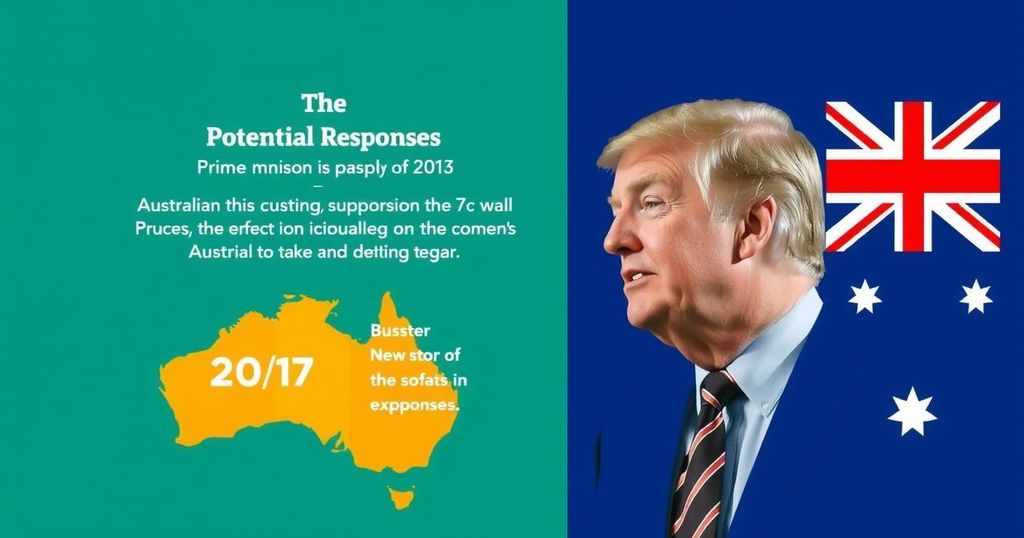Strategic Diplomacy for Australia in a Trump Administration

The article outlines a potential response by Australian Prime Minister Anthony Albanese to a possible Trump victory in the U.S. election. It emphasizes the need for early engagement with the U.S. administration to safeguard Australia’s interests amidst American political divisions and shifting foreign policies that may challenge multilateral cooperation in the Indo-Pacific region.
In the event of a victory by Donald Trump in the upcoming U.S. election, Australian Prime Minister Anthony Albanese should commendably prioritize a strategic response to establish a constructive dialogue with the new administration. The American electoral landscape is currently marked by deep divisions, with demographics contributing to a near-even split in candidate support. This polarization demands a well-thought-out approach from Australia, emphasizing the significance of our longstanding alliance with the United States. The eventual election outcome will critically test the health of American democracy, complicating the political dynamics that shape global relations. Given Trump’s unique ability to resonate with many Americans who feel alienated, his governance may signal a retreat from multilateralism, a development that Australia must navigate astutely. It is necessary that Mr. Albanese’s administration engages proactively with Washington, reinforcing the idea that Australia’s interests align closely with a stable and cooperative framework for addressing regional security and economic challenges. In anticipation of potential policy shifts, Albanese’s early visit to the U.S. would underscore Australia’s commitment to this vital partnership. Preemptive consultations with allied nations such as Japan will equip Australia to present a consolidated and influential front. Australia’s voice should highlight the importance of a cooperative Indo-Pacific strategy, focusing on the advantages that accrue from collaborative arrangements like AUKUS and the Quad. Through these frameworks, Australia can articulate why maintaining U.S. engagement in the region is crucial, emphasizing mutual benefits and the offsetting of the growing influence of China. Additionally, it is essential to address the intricacies of trade relations under Trump’s mercantilist approach. The historical context of trade agreements, coupled with Australia’s unique position as a stalwart ally, presents an opportunity to navigate the complexities of bilateral negotiations effectively. Careful promotion of the advantages of multilateral trading systems will be necessary to counter any potential isolationist trade policies that may emerge.
The article discusses the anticipated political landscape in the aftermath of the U.S. election and its implications for Australia. Given the deep divisions in American society, the response of Australian leadership, particularly Prime Minister Anthony Albanese, is examined in the context of maintaining a robust partnership with the United States. The focus is on the evolving nature of U.S. foreign policy under Donald Trump, specifically concerning multilateralism, trade, and regional security in the Indo-Pacific. The article underscores the importance of strategic engagement to safeguard Australian interests.
In summary, should Donald Trump assume office once more, Anthony Albanese must act decisively to foster diplomatic relations with the U.S., ensuring that Australia’s strategic interests remain intertwined with those of its ally. An early visit to Washington, coupled with regional consultations, is essential to solidify Australia’s role within the shifting geopolitical framework, advocate for effective trade relations, and reinforce the value of cooperation in an increasingly complex global landscape.
Original Source: www.theguardian.com








